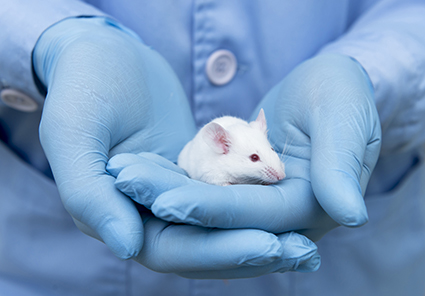Ten leading universities conduct over one third of all UK animal research

- Ten universities account for one third of all animal research in the UK
- Largest animal users are all among the top universities in the world
- All ten universities signed up to Concordat on Openness on Animal Research in the UK
As part of the ongoing commitment to greater openness about animal research, the ten universities which conduct the most animal procedures have publicised their figures today, revealing that they collectively conducted a third of all UK animal research in 2016.* All ten universities appear in the QS World University Ranking Top 100.**
The top ten institutions conduct more than two thirds of all UK university animal research between them, completing a combined total of 1.4 million procedures. Over 99 per cent of these procedures were carried out on rodents or fish, and in line with national data they were almost evenly split between experimental work and the breeding of genetically modified animals.
The ten universities are listed below alongside the total number of procedures that they carried out in 2016. Each institution’s name links to its animal research webpage which includes more detailed statistics. This is the second year in a row universities have come together to collectively publicise their numbers and examples of their research.
|
University
|
Total (2016)
|
|
University of Oxford
|
217,765
|
|
University College London
|
203,744
|
|
University of Edinburgh
|
203,285
|
|
University of Manchester
|
174,120
|
|
University of Cambridge
|
155,394
|
|
King's College London
|
155,058
|
|
Imperial College London
|
101,369
|
|
University of Sheffield
|
83,130
|
|
University of Birmingham
|
54,728
|
|
University of Glasgow
|
50,566
|
All universities are committed to the ‘3Rs’ of replacement, reduction and refinement. This means avoiding or replacing the use of animals where possible, minimising the number of animals used per experiment and minimising suffering to improve animal welfare. However, as universities expand and conduct more research, the total number of animals used can rise even if fewer animals are used per study.
All ten universities are signatories to the Concordat on Openness on Animal Research in the UK, a commitment to be more open about the use of animals in scientific, medical and veterinary research in the UK. 116 organisations have signed the concordat including UK universities, charities, research funders and commercial research organisations.
Wendy Jarrett, Chief Executive of Understanding Animal Research, which developed the Concordat on Openness, said:
“The Concordat has fostered a culture of openness at research institutions up and down the country. Institutions now provide an unprecedented level of information about how and why they conduct medical, veterinary and scientific research using animals. Almost two-thirds of the university Concordat signatories provide their animal numbers openly on their website – accounting for almost 90 per cent of all animal research at UK universities. “
Animal research has played a key role in the development of virtually every medicine that we take for granted today. However, despite decades of dedicated research, many widespread and debilitating conditions are still untreatable. Medical research is a slow process with no easy answers, but animal research helps to take us incrementally closer to treatments for cancer, dementia, stroke and many other debilitating conditions.
Notes to Editors
For further information, please contact the Public Relations department on +44(0)207 8483202 or comms@kcl.ac.uk.
Animal research case studies are available upon request.
*The Home Office recorded 3.94 million completed procedures in 2016, 1.40 million of which were carried out at the top ten universities. A total of 1.94 million procedures were carried out across all universities in 2016, representing almost half of all procedures in Great Britain.
** The QS World University Ranking aims to capture university performance using a variety of measures.
For further information about King's, please visit the King's in Brief web pages